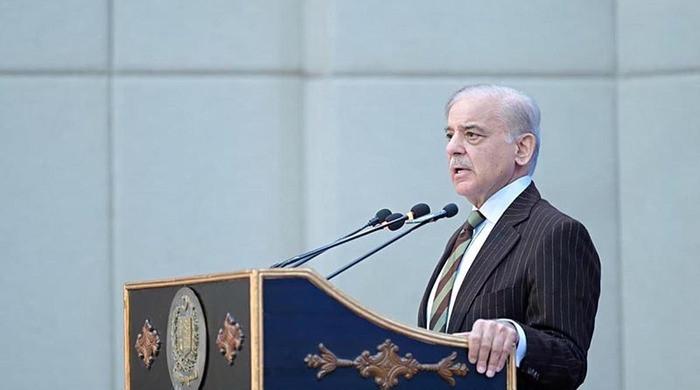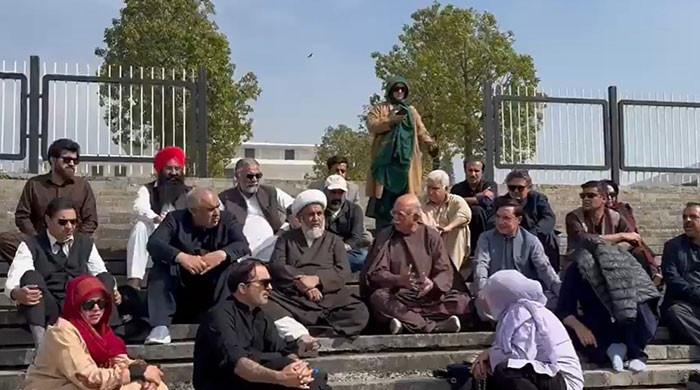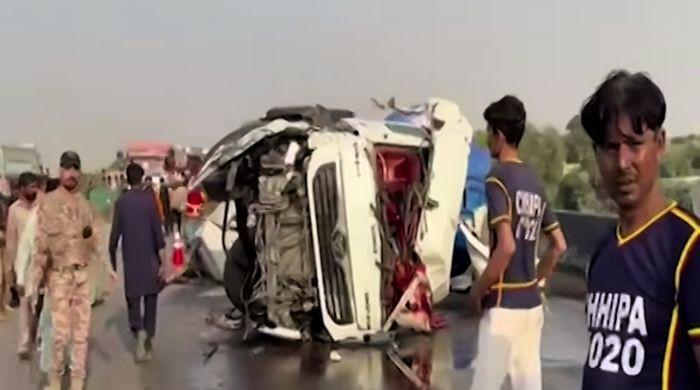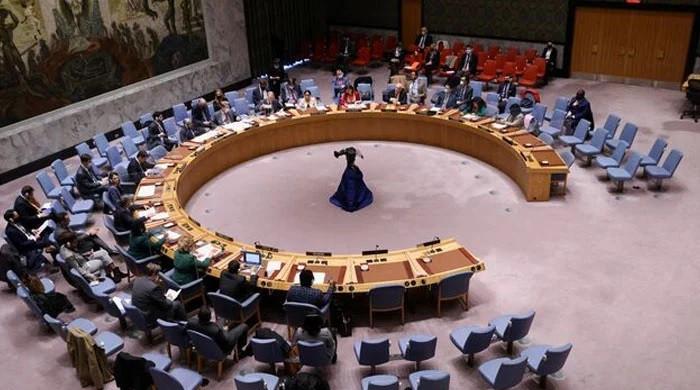Death toll from northern Pakistan monsoon floods hits almost 400
More than 3,000 people have been evacuated by AKAH teams
August 20, 2025
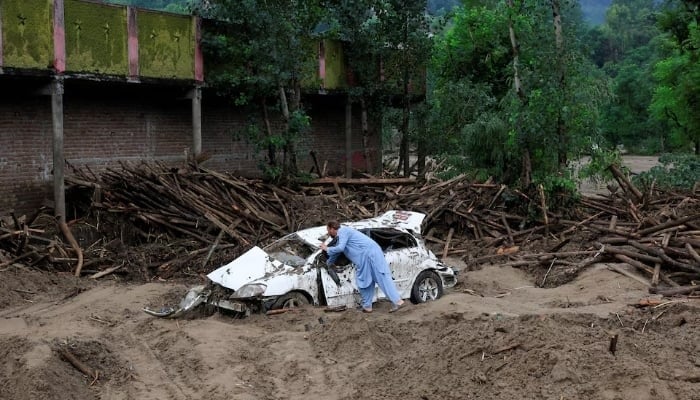
Rescuers and residents resumed searching on Tuesday for survivors as the death toll from five days of torrential rain rose to almost 400, with authorities warning monsoon downpours would continue until the weekend.
Torrential rains across the north have caused flooding and landslides that have swept away entire villages, leaving many residents trapped in the rubble and scores missing.
The National Disaster Management Authority (NDMA) said 356 people were killed in Khyber Pakhtunkhwa since Thursday evening.
Dozens more were killed in surrounding regions, taking the toll in the past five days to almost 400.
Rescuers dug through mud and stone in hard-hit Dalori village in Khyber Pakhtunkhwa in the hope of finding survivors and the bodies of people missing.
Villagers stood watching and praying as the rescuers worked, a day after the search was halted by more intense rain.
Umar Islam, a 31-year-old labourer, struggled to hold back his tears as he spoke about his father, who was killed on Monday.
"Our misery is beyond explanation," Islam told AFP as neighbours tried to console him.
"In a matter of minutes, we lost everything we had," he said.
"Our lives are ruined."
Fazal Akbar, 37, another villager, described the aftermath of the floods as "terrifying".
"It happened so suddenly that no one even had a minute to react. Announcements were made from the mosque, and villagers rushed to begin the rescue themselves," said Akbar.
"In less than 20 minutes, our village was reduced to ruins."
AKDN flood response
Amid the devastation, the Aga Khan Development Network (AKDN) has mobilised relief operations across Gilgit-Baltistan, Chitral and other vulnerable mountain communities.
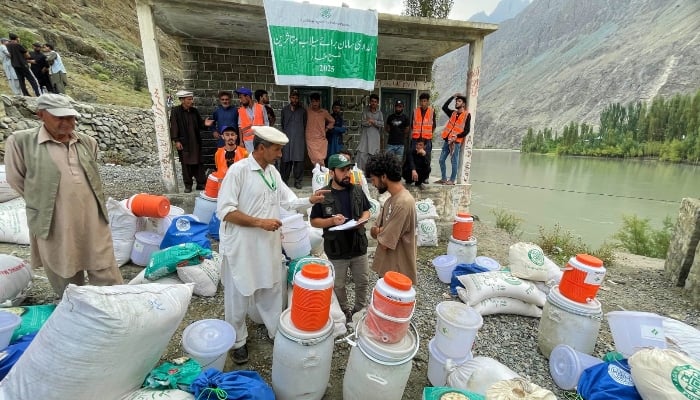
Its lead disaster agency, the Aga Khan Agency for Habitat (AKAH), activated emergency centres in Chitral, Gilgit, Karachi and Islamabad at the onset of the flooding.
More than 3,000 people have been evacuated by Community Emergency Response Teams, who are also distributing food, tents and shelter support. Stockpiles in Gilgit-Baltistan and Chitral have provided emergency assistance, while nine Disaster Assessment Response Teams are conducting rapid surveys in the north.
Community volunteers continue repairing water supply lines, roads and irrigation channels under harsh conditions. In Diamer, Village Emergency Response Teams have rescued stranded residents and tourists, while the Aga Khan Rural Support Programme (AKRSP) has been repairing roads and water infrastructure in Ghizer and Baltistan.
Healthcare workers from the Aga Khan Health Service, Pakistan, remain on 24-hour duty. In Punial, a three-day medical camp treated more than 380 patients, while mobile teams are visiting homes in vulnerable areas to ensure safe deliveries and provide hygiene counselling.
Following an appeal by the GB Chief Minister Haji Gulbar Khan, AKDN has also pledged longer-term support — including rehabilitation of schools and health facilities, solar retrofitting, protection infrastructure, and the distribution of medical equipment and livestock inputs to vulnerable farmers.
More than 700 people have been killed in the monsoon rains since June 26, the NDMA said, with close to 1,000 injured. The monsoon is expected to last until mid-September.
Landslides and flash floods are common during the monsoon season, which typically begins in June and lasts until the end of September.
Pakistan is among the world's most vulnerable countries to the effects of climate change and is increasingly facing extreme weather events.
Monsoon floods submerged one-third of the country in 2022, resulting in approximately 1,700 deaths.





